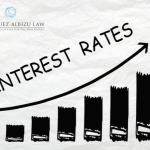- The Governor of Florida has extended the Executive Order preventing residential eviction actions from proceeding in Florida courts until September 1, 2020
- The order only prevents eviction and foreclosure actions from proceeding in court provided the tenant or mortgagor can show that the inability to pay is due to the COVID-19 pandemic; rent and mortgage payments are still due to the landlord or lender during the time this order is active
- Eviction notice can be given to tenants and eviction actions can still be filed with courts at this time
- For any landlord with a property receiving government subsidies or with a federally backed loan they cannot post notices or evict the tenant for any reason
- Landlords may wish to consider alternative dispute resolution techniques while dealing with tenants that owe back rent at this time
On July 29, 2020, Executive Order 20-94 was extended, shortly before the order was set to expire, to be in effect through September 1, 2020. This order, issued by Florida Governor Ron DeSantis, restricts some kinds of real estate evictions and mortgage foreclosure actions. Specifically, it suspends all statutes that allow for the conclusion of a mortgage foreclosure proceeding or conclusion of an eviction proceeding “solely when the proceeding arises from the non-payment of rent [or single family mortgage payment] by a residential tenant [or single family mortgagor] adversely affected by the COVID-19 emergency.” This order therefore alters the foreclosure/eviction landscape significantly from prior iterations as the non-paying tenant/mortgagor must show that the failure to pay is due to the COVID-19 pandemic. Importantly, the order defines “adversely affected by the COVID-19 emergency” as “loss of employment, diminished wages or business income, or other monetary loss realized during the Florida State of Emergency directly impacting the ability of a single-family mortgagor [or residential tenant] to make mortgage [or rent] payments.” This order does not provide any direct financial relief, and thus back rental payment or late mortgage payments will still be owed to the landlord or bank when the order is lifted.
Gov. DeSantis originally issued this Executive Order in April 2020 due to economic hardships caused by the coronavirus pandemic. The order has now been extended four times. Florida is experiencing a large volume of unemployment claims and processing them has been slow. Additionally, the CDC has declared on their website that homeless populations are extremely vulnerable to the spread of the coronavirus, which may be a reason for this order to be extended as it has been for the last four months.
Are there any eviction related actions I can take now?
Eviction notices can still be posted to the property. Florida courts have advised that eviction actions can continue to be filed during the stay of evictions from Executive Order 20-94. Moreover, the new order puts the onus on the mortgagor/tenant to show that their inability to pay is directly related to the COVID-19 pandemic. The order does not provide any thresholds to satisfy this burden, meaning it isn’t clear how much financial impact the mortgagor/tenant must show to seek shelter under the new order.
There are additional protections for Federally backed loans or properties that receive government subsidies. The federal CARES Act’s protections apply to evictions for any reason at all and includes bans on late charges for rent as well as posting notices to vacate on the property.
What should I do if I can’t evict a tenant for non-payment of rent?
Considering Gov. DeSantis’ extension of the executive order preventing evictions from proceeding at this time, landlords may wish to consider if they truly need to move forward with filing an eviction. Landlords should ponder all their options for finding an amicable arrangement to help their tenants work towards a full payment of rent. Consulting with an attorney during this time is a good way to make sure that any action a landlord takes is within the confines of the executive order. Any agreements made with a landlord or tenant should be put into writing to ensure the agreement is finalized and can be referenced in the future. While this can be frustrating for some landlords, due to the ongoing pandemic and the possibility that the Executive Order preventing evictions will be extended again, landlords may see more income through negotiating with tenants than they would attempting to proceed with an eviction.
Rodriguez-Albizu Law is ready to answer any real estate questions you may have. Whether you are a landlord or tenant, we can help you find the best path forward during these difficult times. Get in touch now – https://www.ralawpa.com/contact/






